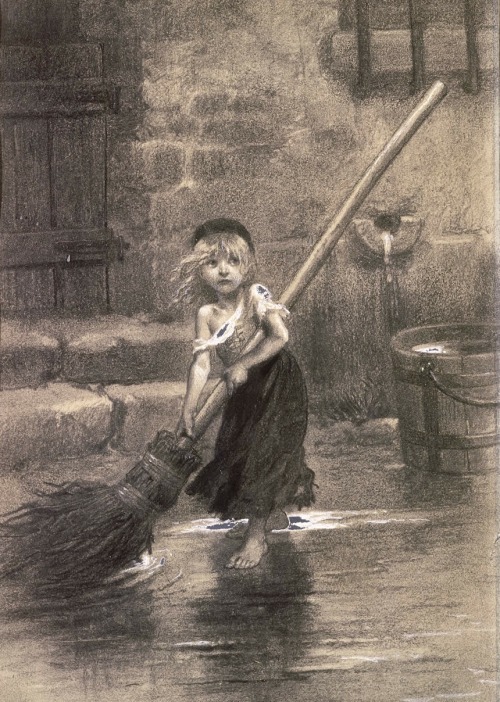“To write the poem of the human conscience, were it only of a single man, were it only of the most infamous of men, would be to swallow up all epics in a superior and final epic,” writes Hugo. And, although he perhaps did not aim to eclipse all previous literature with Les Misérables, the book is nevertheless a novel of the human conscience (if not the poem). But between the reader and this final epic is Hugo himself, and the book is equally an odyssey within the author as within humanity.
Hugo was called in his time L’Homme Ocean, and it is easy to see why. His depths are unsounded, and his volume immense. Les Misérables is, roughly speaking, equally divided between narrative proper, internal narrative, history, and digressive essay. Every action, every topic, every piece of dialogue in the book is potentially a platform off of which Hugo may launch into rarefied airs, extemporizing on the nature of chastity, or the implications of criminal jargon, or the failings of society as regards orphans, women, civic duty, fashion, honor, or whatever strikes him.
It is easy to tell when this is happening. For one thing, it happens for a few dozen pages (or more, in the case of Waterloo) at the beginning of every sub-book. But the reader cannot help but develop a sense of when Hugo is about to diverge from the narrative, since it happens so frequently. The tone changes from one who is telling a story to one who has been asked to give a toast on the topic at hand. It is never unwelcome, exactly, as the man is brilliant and his stray thoughts on an overgrown garden are more compelling than the entire plots of some books I have read, but the reader may occasionally become frustrated at the gleefully desultory advancement of the central narrative.
I pity the high school student who is forced to read the unabridged version, although I am happy to have done it. Unlike other 19th-century classics, for instance Moby Dick, Frankenstein, or The Moonstone, Les Misérables provides little in the way of page-by-page thrills. I picture a student carefully noting down the defining characteristics of the revolutionists of the Corinthe, tragically unaware that these young men, with their histories, preferences, and philosophies, are essentially Hugo constructing deep, nuanced characters just for the hell of it. Spoiler warning: most of them die without warning over the course of a single sentence. Thus does Hugo value his creations! That said, he also makes so many references that taking notes is in fact advised. An index of the books, speeches, historical figures, and so on that he casually includes would be impressive (and edifying).
At all events, the novel is interesting all the way through if one is willing to take it for what it is: a sentimental genius telling you a story during some imaginary, endless idle period as you both sip brandy and smoke. You know the history of Napoleon; you have your opinions on human nature; you are familiar with Paris; no matter, to hear Hugo speak of these things is a different thing altogether — his words are valuable for their own sake, like a friend’s. On the other hand, if you are unable to bear his rather didactic tone, you will not make it through the first hundred pages.
To come at last to conscience, however, the core fact of the book is that it is driven by the consciences of its characters. The main characters never have a choice in what they do: they are constantly compelled by their guiding light. For Jean Valjean, that is love; for Marius, honor; for Javert, the law; for Enjolras (in his brief stint as protagonist), philosophy. The only characters who choose their actions freely have either no conscience (Thenardier, Gavroche) or are not truly characters (Cosette). Apropos of that, it is worth mentioning that the women in this book are not very well-realized. In fact, they are little more than furniture. Dickens, often criticized for failing to characterize his women as well as his men, was a feminist by comparison.
Les Misérables is long and varied, but it is all contained within L’Homme Ocean, and it is easy to dip into the book as one dips into the curated content of today’s personal websites; the personality of Hugo suffuses every word, and to submerge oneself in it is a pleasure, although his expansiveness does not lend itself to storytelling qua storytelling. The point of Les Misérables, in the end, is not to hear an extraordinary story or learn interesting facts about 19th-century France. Those things also occur, but the value of the book is not in its content, but in its presence.

